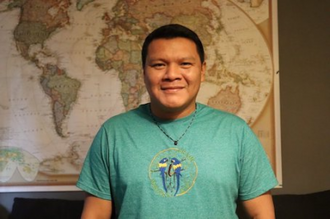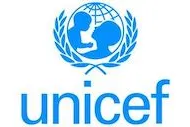Human Rights Day - CAFOD highlights land and human rights defenders

Maurício Ye'kuana
CAFOD marked Human Rights Day on 10 December with a webinar celebrating the work of human rights defenders in Latin America. They face growing threats for protecting "our common home". More than 110 participants heard from CAFOD partners how human rights defenders try to keep governments and businesses in check, put people ahead of profits, and protect the planet's natural resources. This is despite facing criminalisation, harassment, and violence.
The webinar was chaired by Clare Dixon, CAFOD's Regional manager for Latin America, and introduced by Cardinal Pedro Barreto, Archbishop of Huancayo in Peru. He said that "caring for life and our common home is part of our enduring mission".
CAFOD's recent report, 'Protecting our common home: land and human rights defenders in Latin America', found that the Covid-19 pandemic has exacerbated deep inequalities and led to increased attacks on human rights defenders and their communities.
From Brazil, Maurício Ye'kuana, a Brazilian indigenous leader, activist, and Director of CAFOD partner, the Hutukara Yanomami Association, spoke about the problems indigenous people face from illegal gold mining. Mauricio, from Yanomami Indigenous Territory, said that, "businesses do not care about our people; they just want to make money; they don't even pay many taxes." He told UK listeners that, "if you buy jewellery you need to know where it comes from, for gold from Yanomami territory comes with indigenous blood." He highlighted that campaigners in the UK must pressure the jewellery trade. He feared that Brazil's President Bolsonaro is currently trying to relax laws for the protection of Indigenous Peoples.
From Peru, Ivett Ariana Kana Magaño - an environmental defender from the Huisa community in Espinar, part of the National Platform of People Affected by Heavy Metals, reported that her community has been denouncing the impacts of environmental pollution generated by mining in their territory. Concerns have not been addressed by either the Peruvian state or the mining companies involved. Karem Luque, an environmental and human health specialist at CAFOD's partner DHSF in Peru, talked about the social, health and environmental impacts of mining, the criminalisation of social leaders protesting against contamination and the struggle to access healthcare for those affected by heavy metals in Espinar. Both felt that while people internationally know about nearby Cusco, they seem to know little about companies, such as Glencore, devastating the environment and making local communities ill. Karem's parents and brother are all ill because of contaminated water and leaks of mine tailing onto the land. "We were told that mining would bring economic development," she reported, "but it has taken our culture and our identity and destroyed our crops such as Quinoa." She added that, "we hear nothing about this in the media".
From Colombia, Robinson Mejía Alonso, a Forestry Engineer and environmental campaigner in Cajamarca, a mountainous Andes region, spoke about the men and women prepared to defend their land, despite death threats and murders. Colombia had the distinction of being the world leader in slain environmental activists in 2020 (the latest year for which statistics are available). A recent report by Global Witness tallied at least 65 such killings last year -more than twice the number of the next country on the list. Robinson said he and his colleagues want to defend a region which is the breadbasket of the country and an important contributor to the country's food security. He reported that the La Colosa Mining project, the third largest gold project in the world, operated by South African-based multinational AngloGold Ashanti, is threatening water resources, protected snowland territories, and raincloud forests. "We will sacrifice ourselves in order for the region to continue to produce food," he said, "and we will never give up our peasant roots." He concluded with, "Cajamarca is an example of hope and we want to continue nourishing our hope despite the threats we face."
LINKS
The report 'Protecting our common home: land and human rights defenders in Latin America' is available at https://cafod.org.uk/About-us/Policy-and-research/Private-sector/Human-rights-Latin-America
Email MP action: https://action.cafod.org.uk/page/93929/action/1


















